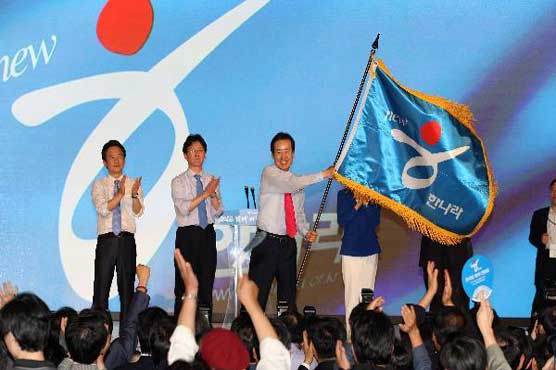S Korea: Ruling party changes its name

GNP announced it has chosen Saenuri (New World) as its new title.

GNP announced it has chosen Saenuri (New World) as its new title.